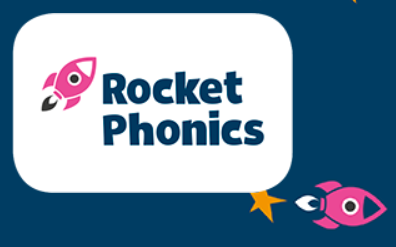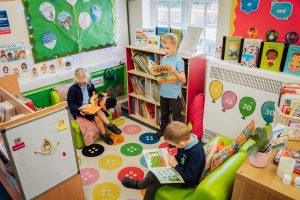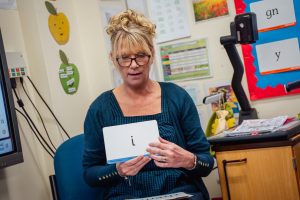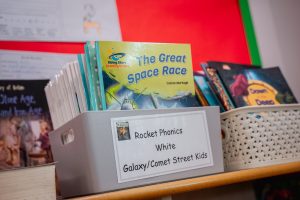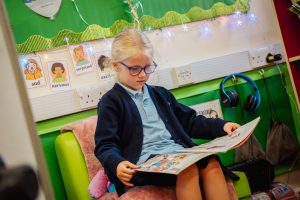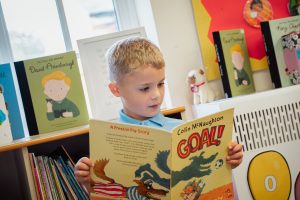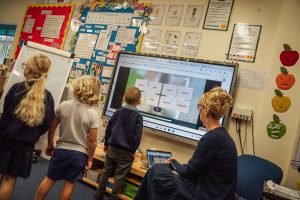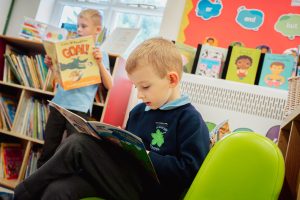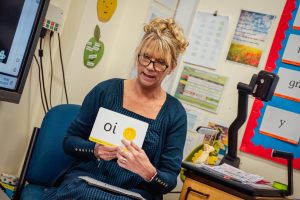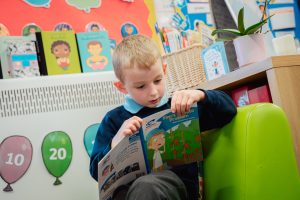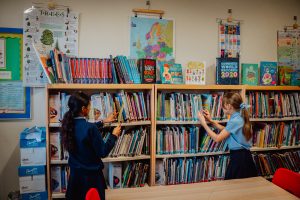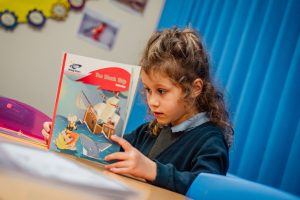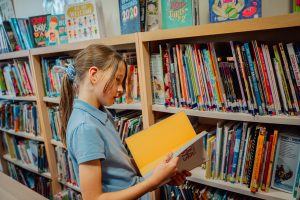Fundamental concepts of Rocket Phonics:
- Phonics is overseen by a dedicated phonics leader.
- Phonics is taught for a minimum of 30 minutes daily.
- All staff are supported with regular phonics professional development training.
- A clear pathway is followed through the alphabetic code.
- Children are not asked to read texts by themselves that they can’t yet read.
- The Systematic Synthetic Phonics Teaching Principles (knowledge of the code and the skills of blending, segmenting and handwriting) are taught explicitly
- The Teaching & Learning Cycle (revisit and review, teach, practice, apply) is followed.
- Children are supported to keep up, so they do not need to catch up.
- Phonics is taught at letter-sound, word, sentence and text levels.
- Core phonics provision is distinguished from phonics enrichment activities.
- Teachers have clarity about what, why and how they are teaching.
- Teachers focus on details, such as accurate modelling and pencil hold.
Five things to expect:
- A steady pace and progression so that all children can keep up.
- Language-rich, online teaching storybooks (Big Books) which present new letter-sound correspondences within the context of captivating illustrated stories plus a range of fully-decodable Target Practice Reader books and eBooks that directly tie in with the progression of phonics lesson.
- Practical, skills-based Pupil Practice Booklets to support daily practice and application of learning
- Explicit guidance on the fundamental aspects of phonics teaching, as well as the aspects that can be adapted to suit the class.
- Weekly plans for a weekly overview as well as detailed daily plans so the programme is suitable for experienced and inexperienced phonics teachers.

Through the teaching of systematic phonics, our aim is for children to become fluent readers by the end of Key Stage 1.
Children can then focus on developing their fluency and comprehension as they move through the school.
Progress in phonics is continually reviewed through periodic phonic assessments and evidence from their reading and writing. Through these, teachers identify the graphemes that need to be addressed which then informs planning.
In June, attainment in phonics is measured by the Phonics Screening Test in Year 1. The national Phonics Screening Check is undertaken to confirm that the children have learned to decode to an age-appropriate standard and determines what level of provision they will require the following year.
Helping your child at home:
To support your child’s development of reading skills and enjoyment of reading, we have developed these opportunities to engage with reading as a family:
- In KS1 your child will bring a phonics book home which is closely matched to the phonemes they know, which will boost their enjoyment and progress. They will also choose an enrichment book which they will read together with an adult. This will widen their reading choices and develop their reading further.
- E books are available to read assigned by the teacher and the used to support children at home as extra reading practice.
| Title | Download |
|---|---|
| Rocket-Phonics-Parent-Guide | DownloadPreview |
